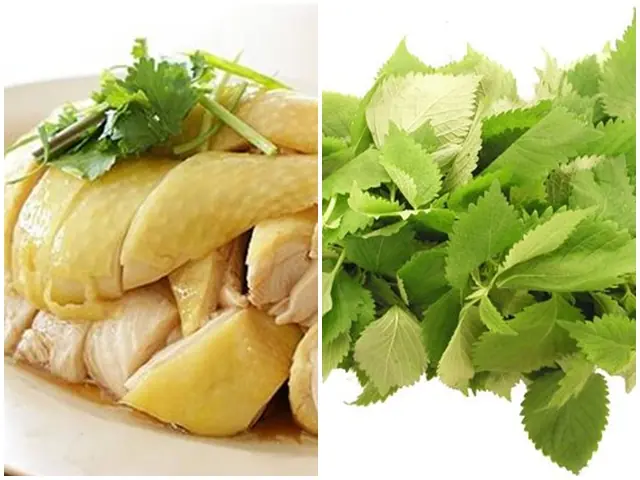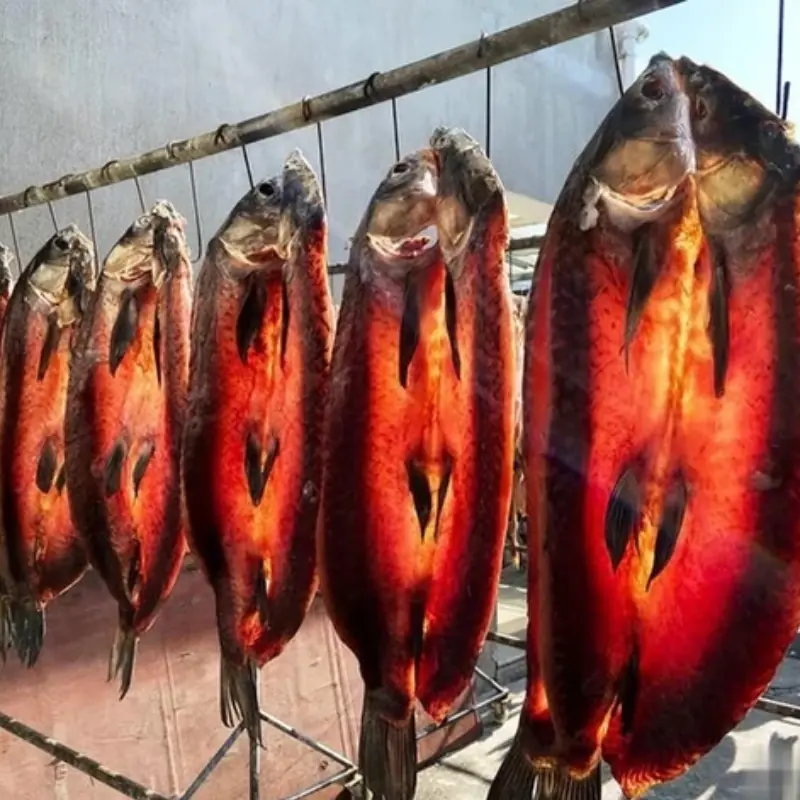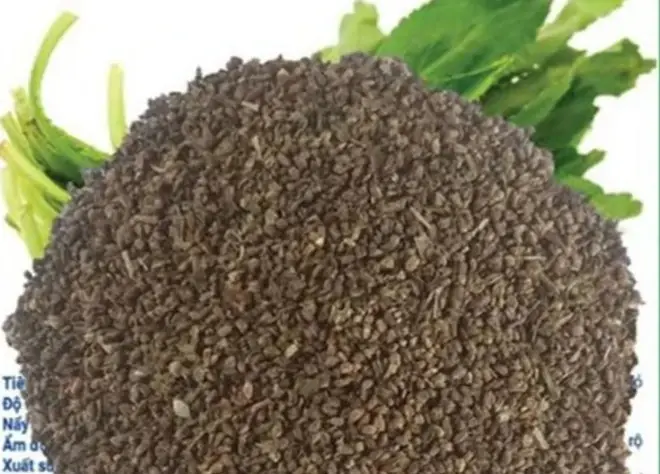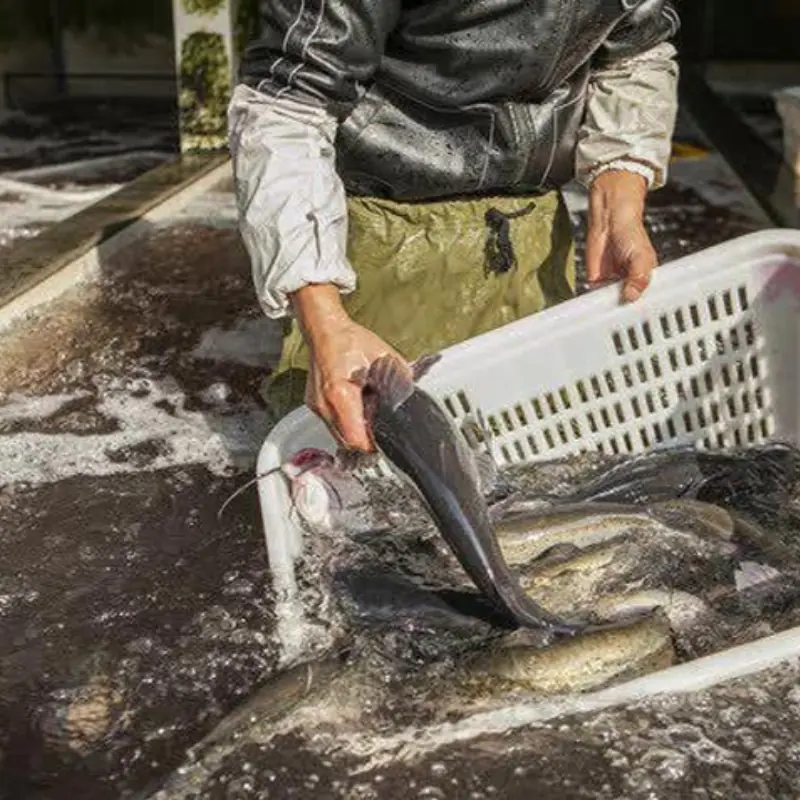
If You Find These 5 Types of Fish at the Market, Fresh and Cheap, Don't Buy Them No Matter What
When shopping at the market, it's easy to be tempted by the sight of fresh fish at bargain prices. However, not all fish are created equal, and some might be better left on the shelf. While freshness and price are key factors in making a purchase, there are certain types of fish you should avoid, even if they seem like a great deal. Here are five types of fish that, despite their appearance, should not be bought at the market, no matter how fresh and cheap they seem.
1. Imported Tilapia
Tilapia is one of the most commonly available fish worldwide and often comes at a very low price. However, most of the tilapia sold in markets is imported, particularly from countries with questionable farming practices. These fish are often raised in overcrowded, unsanitary conditions, which can lead to contamination and health risks. Moreover, tilapia farmed in certain regions may be treated with harmful chemicals and antibiotics that can affect your health. While it may appear fresh and affordable, it's better to avoid tilapia in favor of more sustainably farmed or wild-caught options.
2. Farmed Salmon
While salmon is known for its rich omega-3 fatty acids, farmed salmon often falls short in terms of both nutrition and environmental sustainability. In many cases, farmed salmon are raised in cramped conditions where they are fed a diet of processed food, which alters their natural nutrient profile. Additionally, the conditions in which they are farmed can lead to the use of antibiotics and chemicals. When shopping for salmon, it’s best to look for wild-caught varieties, which tend to have a better nutrient profile and less environmental impact.
3. Bluefin Tuna
Bluefin tuna is known for its delicious taste and is often used in sushi and sashimi. However, this fish is considered endangered due to overfishing and unsustainable harvesting practices. The demand for bluefin tuna has led to significant declines in its population, making it a poor choice for both ecological and ethical reasons. If you find bluefin tuna at a low price, it is likely that it was caught irresponsibly. To protect marine ecosystems, opt for sustainably caught tuna, such as albacore or skipjack, instead.
4. Red Snapper (Imported)
Red snapper is a popular fish in many cuisines, but the imported variety should be approached with caution. Much of the red snapper sold in markets is mislabeled or comes from questionable sources where the fish are caught unsustainably. Moreover, the fish may be falsely marketed as wild-caught, when in fact it could be farmed under less-than-ideal conditions. If you come across red snapper that seems too cheap to be true, it might not be a wise purchase. Look for sustainably sourced snapper or choose other white fish options instead.
5. Mackerel (Atlantic)
Mackerel is often marketed as a healthy choice due to its high omega-3 content, but Atlantic mackerel is a species that has been heavily overfished. Overfishing threatens the population of Atlantic mackerel and disrupts the marine food chain. While it may be available for a low price, buying Atlantic mackerel contributes to the depletion of this important species. If you're craving mackerel, opt for other varieties like Pacific mackerel, which are more sustainably managed.
Why You Should Avoid These Fish
The decision to avoid certain types of fish isn't just about taste or convenience—it’s about making responsible choices for both your health and the environment. Unsustainable fishing practices, unethical farming conditions, and overfishing contribute to the depletion of marine life and the destruction of delicate ocean ecosystems. By choosing responsibly sourced fish, you're making a positive impact on both your health and the planet.
What to Buy Instead
Fortunately, there are plenty of healthy, sustainable fish choices available at your local market. Look for wild-caught fish that are labeled with sustainability certifications like MSC (Marine Stewardship Council) or ASC (Aquaculture Stewardship Council). Fish such as wild-caught Alaskan salmon, sardines, trout, and sustainable varieties of cod and haddock are all great options that offer excellent nutritional benefits without the environmental consequences.
News in the same category


A Builder’s Warning: Why You Shouldn’t Put a Bathroom Under the Stairs — Even With an Unlimited Budget

Air Fryers Are Convenient—but Never Use Them to Cook These Foods: The Complete List

What Happens to Your Body If You Eat 1 Clove of Garlic Every Day?

So this is what it does, here is the answer

People Who Eat Sweet Potatoes for Breakfast Daily Notice These Changes

Study reveals what really happens to your body if you go in sauna directly after working out

Why are the toilets on the train connected directly to the tracks?

A Flower Once Thought Useless Turns Out to Be a Fragrant, Delicious Dish—Now Going Viral

These are the consequences of wearing used…

If you often notice ringing in your ears, this might be a sign that you will suffer from...

Many people don’t know what its purpose is used for

Why should you avoid showering, washing dishes, and doing laundry during a thunderstorm?

Calling all sweet potato fans!

Ever Wondered Why Hotels Put a Cloth Across the Bed? Here’s the Answer

Your Air Conditioner Has a Built-In Way to Indicate Low Refrigerant — Many People Never Notice It

Your Phone Has a Small Setting That Makes Charging Feel Much Faster — Without Harming the Device

Trying to Save Money, Many People Accidentally Bring Serious Danger Into Their Homes

Eating Ginger Without Removing the Peel: Is It Really Harmful or Just a Common Misunderstanding?

Unlock the mystical power of an antique relic
News Post

Scientists May Have Actually Found One Of The Causes Of Autism

24-Year-Old Woman Suffers Stomach Perforation Due to One Common Morning Coffee Mistake

One Month Before A Heart Attack, Your Body Will Warn You Of These 7 Signs

This One Superfood Could Tackle Major Health Issues—Here’s What You Need To Know

Anyone with high blo.od fat should use this seed: just about $0.20 per handful, and every part—from leaves to roots—is medicinal

Why Your Hard-Boiled Eggs Have That Weird Green Ring

Itching in 9 Areas: A Warning Sign of Malignant Tumors, Number 7 Is the Most Common

A 111-year-old man eats these two foods every day—and they’re incredibly cheap at local markets

Eating Just One Bite is Already Harmful, But Many Still Eat It Without Worry

A 4-Year-Old Girl Nearly Lost Her Life to Diabetes — Parents in Tears: “I Spoiled Her Too Much!”

3 Signs Your Parent May Be Nearing the End of Life — How to Prepare for What’s Ahead

With just one tablespoon of olive oil a day, the body can gain multiple benefits for the heart, digestion, and skin—if used correctly.

A month before a stroke, your body warns you: 10 signs not to ignore

Early Signs of Kidney Disease & How to Protect Your Kidneys (Evidence Based)

What Does It Mean When You Dream About Someone Close Who’s Died?

8 Foods You Should Not Combine With Chicken Meat — Everyone Should Know to Avoid Health Risks

Is Falling Asleep the Moment You Lie Down a Good Thing? Many People Have Been Misunderstanding This

Never Pair Eggs With These 3 Foods: Your Health May Suffer

WHO warns: Stop immediately if you are eating too much of these four types of fish
